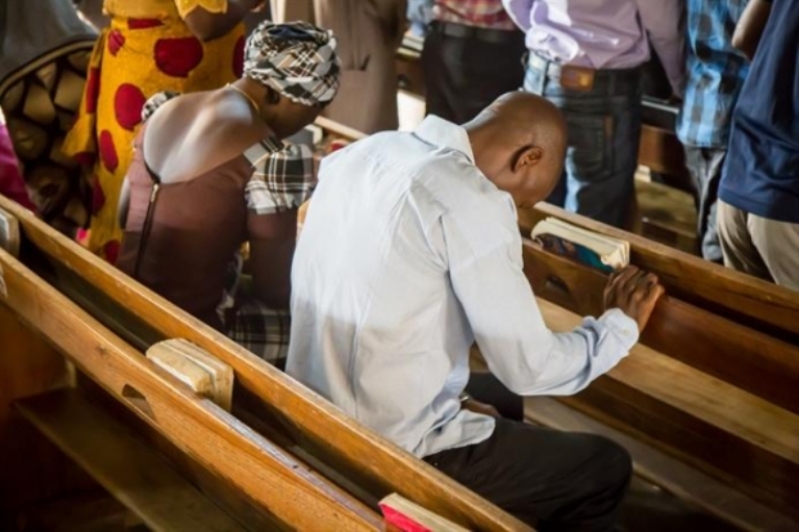
A decade after Muslims attacked and displaced Christians in a town in northern Nigeria, Kano state officials have forbidden church buildings to be rebuilt there, sources said.
Eight church buildings destroyed in late September 2007 in predominantly Muslim Tudun Wada Dankadai, Kano state, are still in ruins, a Morning Star News correspondent observed earlier this month.
The buildings of St. Mary's Catholic, Evangelical Church Winning All (ECWA), Baptist, Assemblies of God, Charismatic Renewal, Mountain of Fire and Miracle and Deeper Christian Life Bible churches, along with that of another church, have not been rebuilt because local Muslims have refused to allow it, Joseph Opeyemi Ibinkule, a 42-year-old a Christian resident of Tudun Wada Dankadai, told Morning Star News.
"Christians who have braved it and returned after the attacks in 2007 have no worship buildings up to today," Ibinkule said. "The reason is that the government of Kano state has banned us from rebuilding our churches."
No pastor lives in the town, he said, and only a few come to lead services to a smattering of church members in the hostile environment.
"These are the ECWA pastor and the Catholic priest," he said. "Both of live in the city of Kano and only come to conduct services under trees for their members."
Kano state officials declined to comment to Morning Star News.
Ibinkunle said the 2007 assault, in which at least nine Christians were killed, was ignited by Muslim students accusing high school Christians of blasphemy.
"The Muslim students attacked Christian students, and soon they were joined by Muslims in this town," he said. "All eight churches were destroyed, Christians were displaced, and many Christians were also killed. I personally saw three corpses of members of the St. Mary's Catholic Church who were killed by the Muslim attackers."
The attack was premeditated, and then it led to further spontaneous violence, he said. Church buildings were burned, and houses and shops of Christians were looted and charred, he added.
Advocacy group Christian Solidarity Worldwide reported in 2007 that the violence began after Muslim students stormed into a room shared by two Christian students at the Government Secondary School in Tudun Wada and began to assault them.
"When the Christian students asked what they had done wrong, their assailants initially told them to 'mind their own business,'" CSW reported. "However, once the school principal arrived at the scene, the Christians were accused of drawing a picture of Muhammad on a mosque wall and of planning an assault on Muslim students."
Local authorities appeared to limit access to the area to obscure inquiry into the extent of the casualties, according to CSW. Tudun Wada's chief of police sealed the area off, and local authorities transported Christians out of the area and removed all corpses. Those trying to help victims were denied access, CSW reported.
Three Mountain of Fire pastors in Kano City were temporarily detained when they attempted to evacuate members of their denomination, according to CSW.
"As a result of this enforced isolation of the area, the exact number of fatalities is difficult to determine," CSW reported. "However, sources suspect that the toll is far higher than originally stated. One policeman was overheard complaining of being 'fed up of packing corpses.'"
The son of an Apostolic Church pastor, Ibinkunle said he has been worshipping under a tree with the members of the ECWA congregation since the 2007 attack.
Court Efforts
ECWA leaders in Tudun Wada have taken the Kano state government to court for prohibiting them from reconstructing the church buildings.
"The Kano state government stopped us from rebuilding the destroyed ECWA church in Tudun Wada, so we have taken the matter to court, and we hope we shall get justice at the end of the case," the Rev. Murtala Marti Dangora, vice chairman of the Kano State Chapter of the Christian Association of Nigeria (CAN), told Morning Star News.
The Rev. Ayuba Hassan, chairman of Tudun Wada chapter of CAN, said the ECWA is the only church trying to reestablish itself in Tudun Wada.
"We currently worship under a tree and have continued to insist that we be allowed to rebuild our place of worship," Hassan said. "The government is not ready to allow us do so, as they claim that the Muslims in the town do not want to have any church there. We are waiting for the outcome of the case in court."
Officers at the police station at Tudun Wada confirmed that there is no church building standing in the town.
Asked where the ECWA church was located, an officer told Morning Star News, "Do you see that tree over there? That's where the ECWA church is."
Near the tree where the ECWA building once stood was part of its wall with an inscription by the Kano State Land and Survey agency warning against redevelopment of the land.
Morning Star News returned to the police station and remarked to the officer that only the ruins of the church building remained near the tree.
"Don't you know that there is no church in Tudun Wada Dankandai?" he said.
Asked about the church pastor, he said, "Sorry, the pastor does not stay in this town; he comes from Kano on Sundays. I also worship with them under a tree you see there. That's where we worship."






